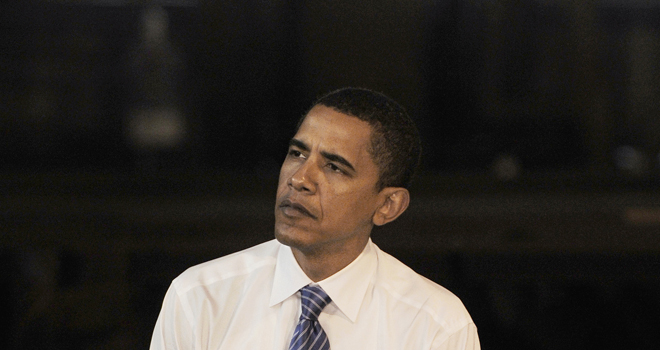One line more than any other in President Obama’s primetime speech about gradually withdrawing troops from Afghanistan is coming back to haunt him.
“America, it is time to focus on nation-building here at home,” Obama said towards the end of the speech.
The dramatic line was music to the ears of many of his fellow Democrats and voters who supported him. The words tapped into the populist, isolationist tendencies of many voters across the country who have an acute case of combat fatigue after nearly a decade of wars initiated by another president who promised the very same return to domestic concerns before the 9/11 attacks.
But what exactly did Obama mean by the line? How can the U.S. simply pull out most of its military while simultaneously yanking its civilian international development assistance programs, the billions of dollars in Afghan economic stimulus plans the U.S. has channeled into the country?
As President Clinton has repeated recently, ‘It’s Still the Economy, Stupid.” And that saying applies to Afghanistan too. History has shown a direct link between poor countries that lack economic opportunities and terrorism activities.
Secretary of State Hillary Clinton was asked about the nation-building line in the speech when she appeared before the Senate Foreign Relations Committee Thursday morning. In her opening statement and afterward, Clinton pointed out that one year of State Department activities in Afghanistan aimed at building the infrastructure, and schools and trying to attract international economic investment, amount to the cost of 10 days of military action there.
“We would like to free up those funds to be able to use on our civilian side to advance our objectives,” she told the committee.
Clinton’s remarks prompted a sharp line of questioning from Sen. Bob Corker (R-TN).
.
“Are you comfortable continuing doing the nation-buiding – I know you don’t like to call it that – but the state building and the kind of things – not only while we’re there but after we leave?” he asked.
“I am confortable in our continuing to interact and support Afghan leadership at all levels…,” she said. “I know that so-called nation-building rightly raises many questions in people’s minds, and that’s not what we think we’re doing.”
The response didn’t alleviate Corker’s concerns, and he asked Clinton to get back to the committee with some hard numbers for the dollar figures we plan to spend on State Department and USAID efforts in Afghanistan in the months and years to come.
When it comes to spending so much money on Afghanistan’s infrastructure and government institutions, Corker said he worried it has transformed the country into a “supplicant” – that Afghanistan doesn’t exist without U.S. involvement.
Sen. Jim Webb (D-VA), an outspoken critic of both the Afghanistan and Iraq wars, said Corker’s and others’ questions about the sustainability of nation-building are legitimate.
“It’s like ground-hog day,” he said, “and I keep trying to come back to how we came into” Afghanistan in the first place and what our original objectives were.
White House spokesman Jay Carney was asked during a Thursday briefing with reporters exactly what the President meant when he uttered the nation-building line, how much money are we spending on State Department efforts in Afghanistan right now and how much do we plan to spend as the military drawdown moves forward?
“I don’t have dollar figures, and it’s not — again, this is about a long-vision strategy that the President put into place in December of ’09, and at the heart of that strategy is defeat, disrupt, dismantle al Qaeda, contain the momentum, roll back the momentum of the Taliban, and give the Afghan government the space it needs to build up its security forces with our help, obviously with our training,” he said.
In other words, it depends on what your definition of nation building is because it will no doubt be a very long time before Obama or any other president announces a detailed plan to pull out the army of U.S. civilians who are holding the Afghan government’s fragile house of cards together.









